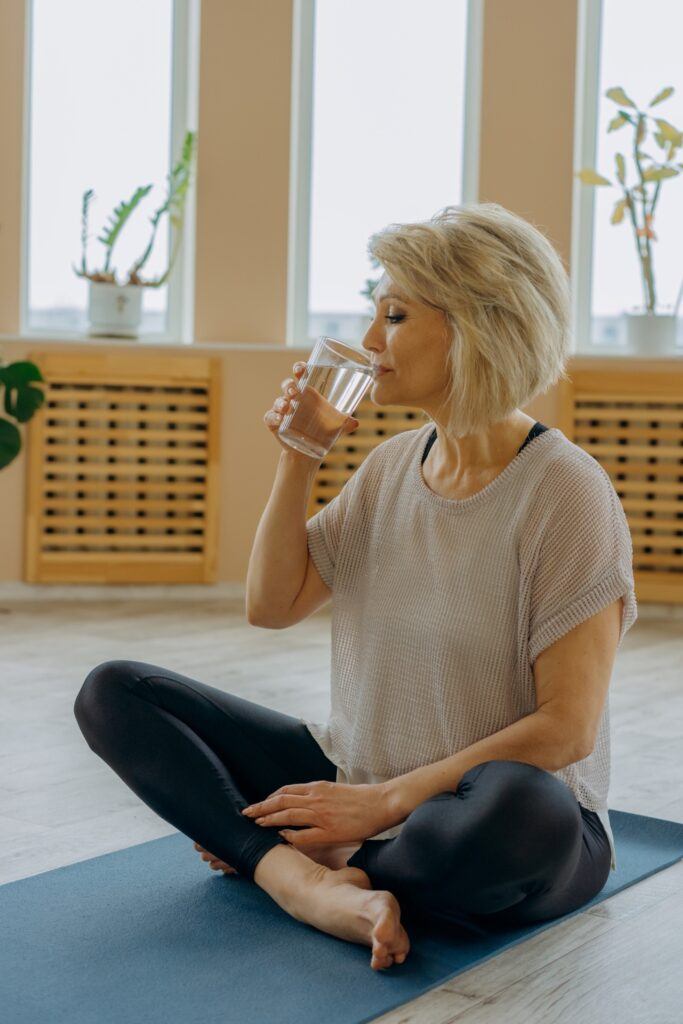Elders and their caregivers confront multiple, often simultaneous stressful challenges of loss, illness, and disability. Many are treated with Western medicine for pain and chronic conditions, which may be stress-related, often producing marginal results. In addition, studies now connect high levels of stress with lowered levels of cortisol, impacting our immune system’s ability to fight large and small diseases (R. Sapolsky, Why Zebras 2004). This is especially significant for seniors going through multiple emotional and physical changes, as well as caregivers who are at an increased risk for burnout. Now more than ever, elders and caregivers are turning to mind-body interventions, utilizing the connection between the mind, body, emotions, and spirit for healing. Personal experience may have already informed much of what science is now validating — the mind and body are connected!
Mind-body stress reduction skills are often taught as “mindfulness practice.” Mindfulness based interventions (MBIs) may be taught as a formal practice of meditation, walking, or yoga; or as an informal practice of learning to pay attention to daily activities- eating, working, talking, etc. Mindfulness skills promote an ability to respond, rather than react, to crisis. Mindfulness training has been shown to reduce anxiety and strengthen immune response, offering preventative tools for both mind and body (Kabat-Zinn, Full Catastrophe Living, 1994). Recent preliminary studies have found that these skills can be adapted to teach older persons with physical and cognitive frailties, and stress. The application of MBIs for professional and family caregivers is equally important. Caregivers are the primary contact for older persons, and if the caregiver is distressed, the older person will also be distressed. MBIs offer a means to heal and support both caregiver and care receiver.
Meditation
I have found both frail elders and caregivers receptive to seated meditation. Frail elders may need shorter, more directive and guided experiences. With dementia patients, my non-verbal presence and tone helped participants understand the expectations. Some report this experience connects them with past spiritual practices, others find a sense of peace and control in the midst of distressing events. One frail elder with a history of paranoid schizophrenia, reported that the group meditation was the only place she found deep peace. She also reported that the meditation practice reminded her of lighting candles on Friday night, a part of her Jewish roots.
Gentle yoga or mindful movement
Adapted yoga serves many purposes for frail elders and their caregivers. The underlying principle of this practice leads to deeper understanding of our bodies, as well as our habitual emotional responses. Taught from the perspective of potential rather than limitation, yoga is available to everyone. Frail elders, as well as many caregivers, may not view their body as an ally. In yoga, they may begin to develop a new, friendlier relationship with their body. The role of instructor is key to supporting this attitude towards yoga and bodies which are non-competitive. For example, when stretching our arms, I might instruct that those who cannot use one or both arms, to just stretch the arm that is available to them. If they cannot move their arms at all, I ask them to focus on their breathing and imagine they are stretching with us. Demonstrating, verbal cuing and hands on assistance may be helpful, and for those who are less mobile, the internet is a good resource for researching chair and bed adaptations.
When working with caregivers, I have found mindful movement an excellent way to integrate practices into a busy life. Caregivers are encouraged to practice standing mountain pose any time they are waiting (for the elevator, in line at the store or bank…). Mindful walking can also be done, briefly, during a busy day. Deep breathing is also a skill that caregivers find useful in stressful moments. And once learned, the discipline of using the breath to stay calm can have advantages for the caregiver and the patient.
Informal practice
Frail elders are frequently reminded of their limitations and dependency; mindfulness practices offer choice and control over one’s response to situations. Caregivers also often feel their life is out of their control. Using our breath as an anchor for our attention, we can choose to stay in the present moment, whether pleasant, unpleasant, or neutral. As one caregiver reported: I feel less anxious about stress than I formerly did. I now think about ‘riding the waves’ instead of getting anxious about them or ‘fighting’ the waves. I feel less responsible for my mother’s well-being.
The first step for GCM’s interested in exploring and sharing mindfulness skills with the elders they work with is to learn more about meditation and yoga groups/classes in the community. Some assisted living communities have already integrated these non-traditional techniques for residents who are not particularly religious but looking for alternative means to cope with stress. They become more resilient when dealing with multiple losses and show an increase in overall sense of well-being.
Advocare Care Management offers many resources that improve elder care in Palm Beach, Miami-Dade, and Broward counties. We are advocates for seniors, caregivers, and their families. Aging is just a number, and you can learn new ways to get smarter and better with age. We offer transitional services and care planning to make things go smoothly for everyone. You can contact us 24 hours a day or anytime you need our assistance. Contact Advocare Care Management today and let us show you how we can make a difference for you.
Reprinted with permission from Aginglife.org. Advocare Care Management is the place to go for all of the assistance and support you need.

